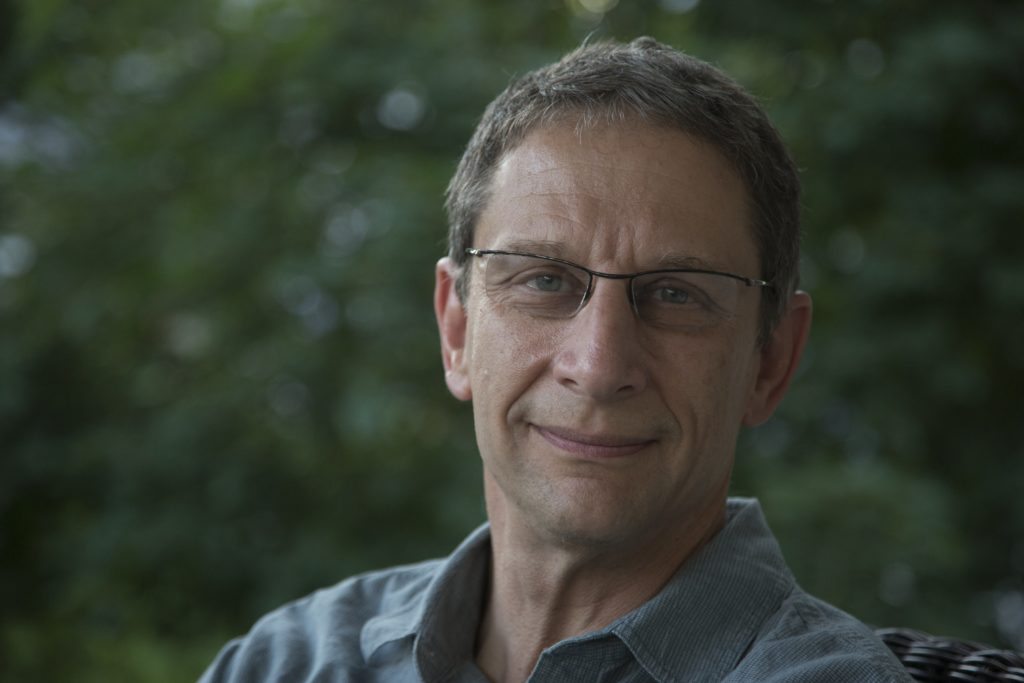
David Finkel. Photo by Lucian Perkins
What’s the most important lesson you’ve learned as a writer?
If reporting is always getting the name of the dog, writing is knowing when not to use the name of the dog.
What has been the biggest surprise of your writing life?
The surprise is that I could even have a writing life, but that’s a lame answer, so let me go back to the first question. Another lesson I’ve learned is the importance of being methodical. Not that there’s one, perfect method, but the one that has worked for me is knowing my ending before I begin writing. I used to get so lost in writing when I didn’t do this, as if magic, rather than method, would solve the day. Now, if I know my ending, and I mean the actual ending, down to the last sentence, even the last word, it means I know that my reporting is finished and I have a story to tell as opposed to, say, a caption to write. It also means I know the emotional tone of the piece and I can structure my material to get there as consistently and efficiently as possible. In every story I’ve done over the second half of my career, including my books, I’ve known my ending before I wrote the beginning.
If you had to use a metaphor to describe yourself as a writer, what would it be?
I’m terrible at metaphors, so I’m going to pass on this one except to say part of writing is making peace with your weaknesses and avoiding them.
What’s the best piece of writing advice anyone ever gave you?
The first came from a writer who is better than me, and who I was trying to impress by describing a story structure I had worked out that was so sophisticated I was sure it was going to dazzle her. In the kindest way, she said: You know, I’ve found in my own work that the more complicated the structure is, the more time I have to spend getting myself out of corners, and the simpler it is, the more room I have to write my story.
And the second is that old Hemingway advice: As a writer, you should not judge. You should understand.
David Finkel is a journalist and author of “The Good Soldiers,” an account of a U.S. infantry battalion during the Iraq War, and “Thank You For Your Service,” a sequel that chronicles the challenges faced by soldiers and their families in war’s aftermath. An editor and writer for The Washington Post, Finkel has reported from Africa, Asia, Central America, Europe, and across the United States, and has covered wars in Kosovo, Afghanistan, and Iraq. Among his honors are a Pulitzer Prize for Explanatory Reporting in 2006 and a MacArthur Foundation “Genius Grant” in 2012. He lives in the Washington, D.C. area.